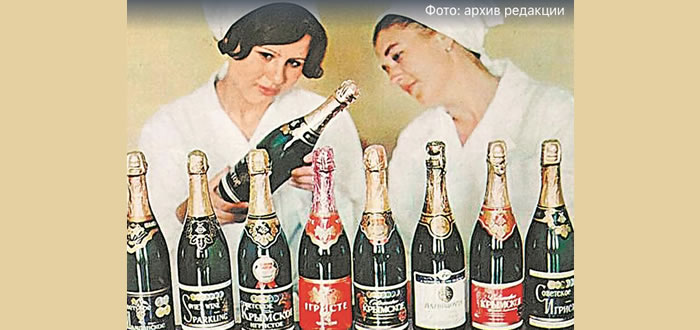Vladimir Putin has just authorized an amendment to the liquor law which reserves the exclusive use of the term “champagne” to Russian producers. French Champagne producers will be able to keep the word Champagne in Latin but therefore have to change the labels to Cyrillic for the appellation “bubbly wines” when importing to Russia.
The Russian president is following in the footsteps of Stalin, because it was indeed, under “the Father of Nations”, as Stalin was nicknamed, that the Soviet champagne Sovetskoye champanskoye was launched. The sparkling wine technique produced in the former USSR was developed in 1928, created from aligoté and chardonnay grapes with the fermentation taking place during a continuous circulation between vats in contact with yeast and oak chips.
According to the French daily newspaper Le Monde dated the 6th of July, the decision of Vladimir Putin could be seen as a way of supporting one of his relatives, the boss of the group Novy Svet (New World) which produces sparkling wines in the Crimea. In this once Ukrainian peninsula, annexed by Russia in 2014, the production of sparkling wines dates back to 1878, precisely around the town of Novy Svet. At that time the Russian prince Lev Golitsyn, passionate about champagne, established a vineyard producing his famous sparkling wines to such perfection that one of them won the gold medal at the Universal Exhibition of Paris in 1900. In short, as always with Russia, one quickly dives back into history.
The locals of Champagne who spend fortunes each year defending themselves against the usurpers of the brand are understandably furious given that the name purely derives from their locality. Even though, the Russian market represents 1.9 million bottles of champagne from the top brands exported in 2020, it is twelve times less than the American market. It is likely that the French will change their labels if they wish to cross the Volga. But the French Minister of Foreign Affairs will go and plead France’s cause to the independent umpire of the World Trade Organisation (WTO).
Champenois winegrowers can take comfort in seeing what has befallen Australian wine producers. In reaction to the Australian government proposing an independent inquiry in the COVID-19 outbreak, China has retaliated with considerably increased customs duties. – more than 200% – against Australian wines, of which it had become in a few years one of the main outlets. In just a few months, the export value of Australian wines to China dropped from A $ 1 billion to A $ 20 million …
